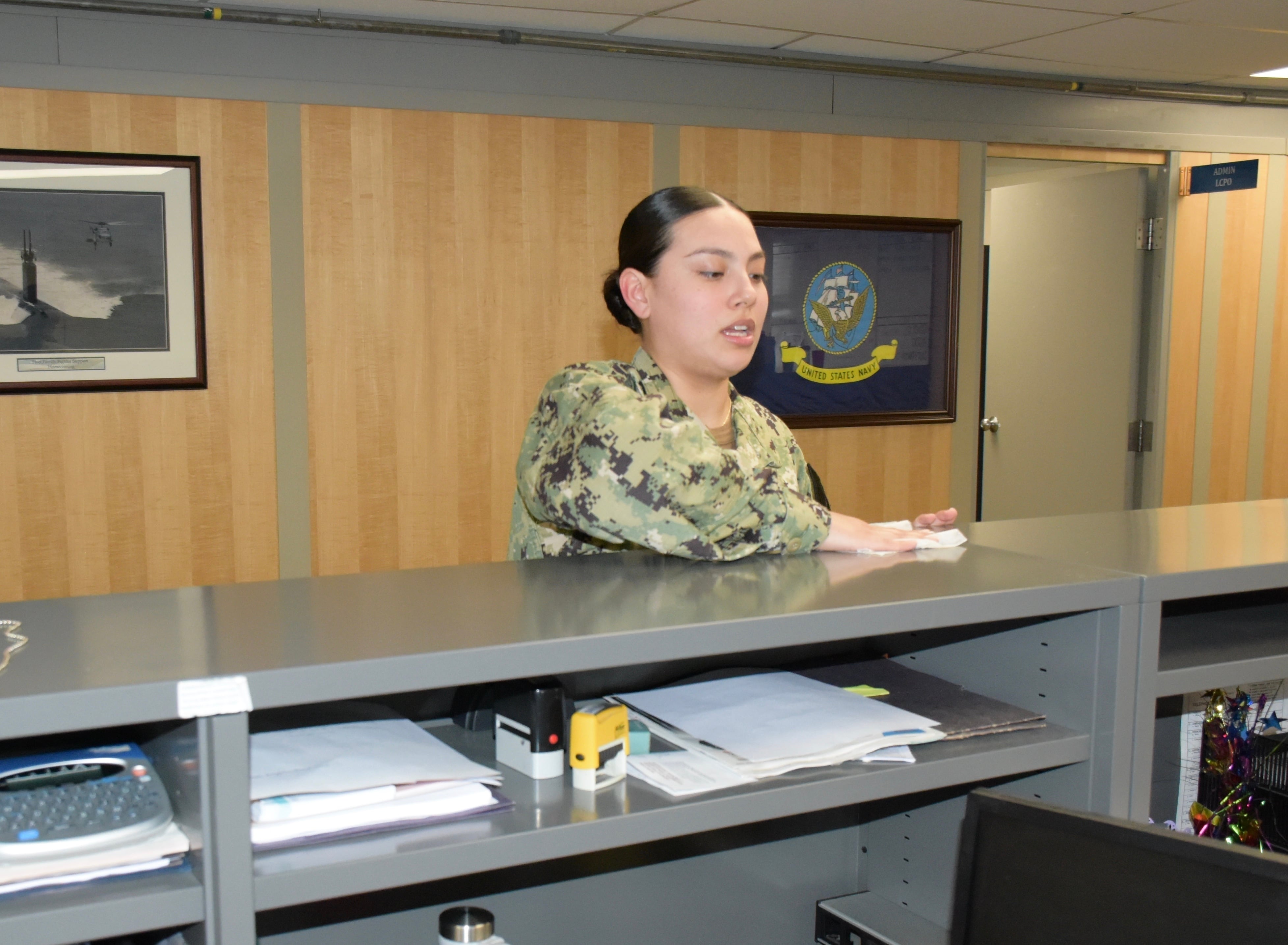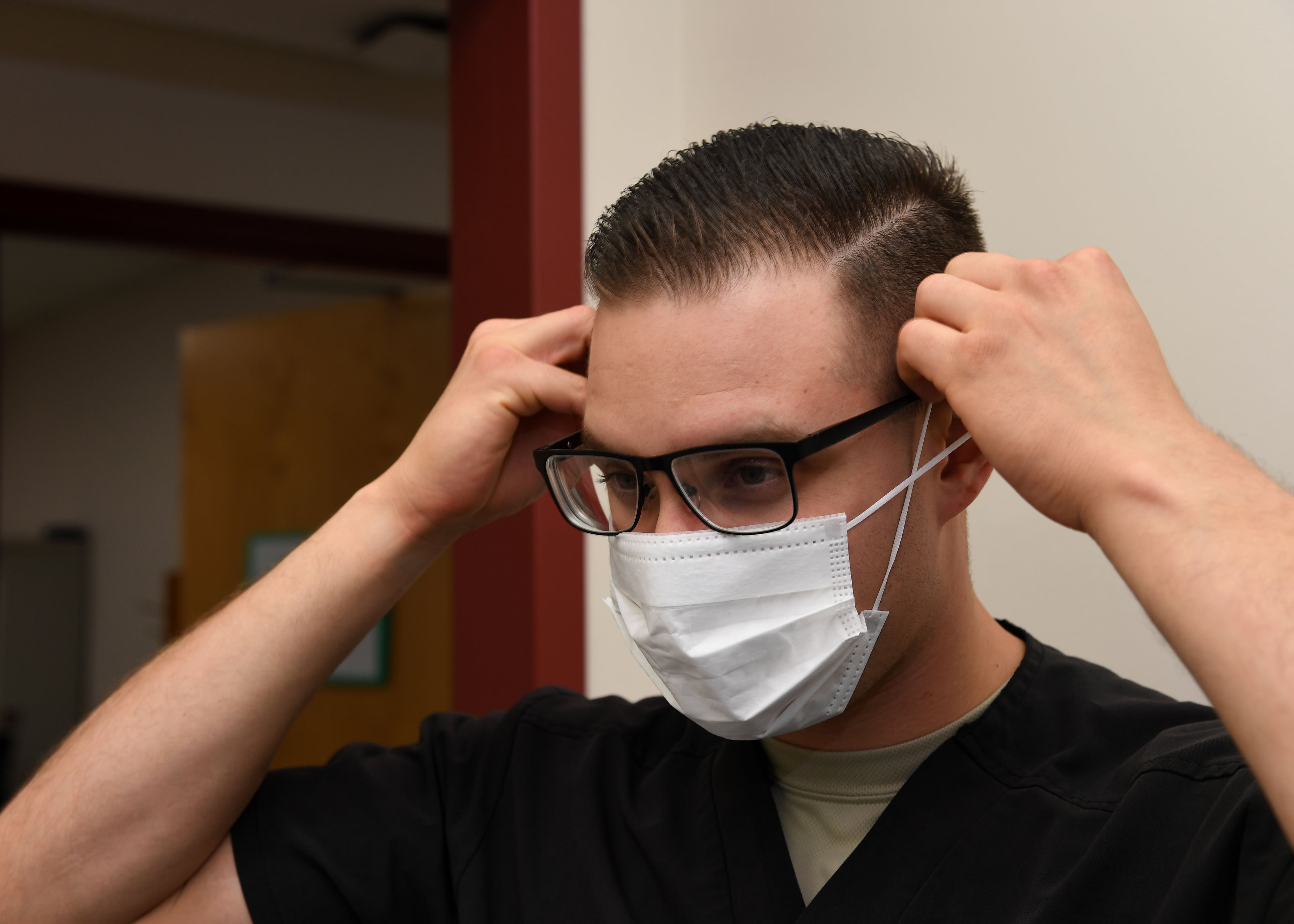Since the Defense Health Agency began asking beneficiaries to speak with a nurse before seeking medical treatment for a possible COVID-19 infection, military health system’s Nurse Advice Line has been flooded with calls, causing wait times of up to two hours for a consult.
During a live town hall forum on Facebook Tuesday, DHA officials acknowledged that the call center was overwhelmed, and they planned to meet later in the evening to see how “we can improve the speed with which we can get you connected to the nurse.”
The admission followed repeat questions by audience members on issues with the system.
“Is anything being done about the extensive wit times to speak with a MHS nurse line?” asked Austin Carrigg, an Army spouse and advocate for military families enrolled in the Exceptional Family Member Program.
“Nurse advice line has over an hour wait,” Tricare beneficiary Carolyn Foster wrote after those holding the town hall repeatedly urged beneficiaries to call the line before going to an urgent care facility or an emergency room.
RELATED

The Defense Health Agency is hoping to triage possible cases of the COVID-19 coronavirus to prevent spread of the contagious illness.
Military treatment facilities are currently only testing individuals who have symptoms of the illness and who also have either have been in contact with an infected individual or traveled to a country designated by the Centers of Disease Control and Prevention as a place where the virus is endemic.
The Nurse Advice Line is key to determining who needs to be tested, explained Regina Julian, chief of the health care optimization division at the Defense Health Agency.
“The Nurse Advice Line can provide you consistent answers at all hours, 24 hours a day, 7 days a week,” Julian said.
Dr. Lisa Di Enno, a former Navy pediatrician who now serves as medical director at XPertCare Medical Group, a telemedicine start up that operates in California and Virginia, said she began hearing about Nurse Advice Line delays months ago and expects the issue to get worse if nothing is done.
“This affects my [patient] families,” Di Enno said. “What I’ve seen happen on Facebook is that moms wait hours to get a nurse on the line, give up and then just ask other moms their questions. There’s a lot of incorrect information being dropped. The moms are well-meaning, but it’s a little scary.”
Advice line representatives can make appointments for Tricare Prime beneficiaries at most military hospitals or clinics and make recommendations on whether beneficiaries should seek care.
Julian said that with COVID-19 cases, a nurse will be able to set up a virtual visit for patients suspected of the virus who usually are seen at a military treatment facility or determine whether they need to go to an emergency room or call 911.
She added that patients who are in Tricare Prime or Select who do not use a military clinic or hospital call their providers directly.
RELATED

Besides calling the Nurse Advice Line, 1-800-874-2273, Option 1 in the U.S., patients can call their military hospital, primary care team or civilian provider, or their appointment lines, or reach out through direct chat or video chat by going online to the MHS Nurse Advice Line website. Several spouses during the Facebook town hall said wait times for direct chat were roughly 20 minutes.
Other options include messaging Tricare through Tricare Online, or your health facility through the MHS Genesis portal if their facility is already on the electronic health records system.
Julian said the Defense Health Agency is looking to hire more nurses and making other improvements. She asked Tricare benficiaries to “be patient.”
“Think about it this way: One of our own staff members at DHA said he was on the phone for an hour, but it would have taken him a lot longer than an hour to drive to a military treatment facility or wait in an urgent care lobby to get care," Julian said. “Please be patient … we’ll make sure you get the most clinically appropriate level of care you need.”
Patricia Kime is a senior writer covering military and veterans health care, medicine and personnel issues.





